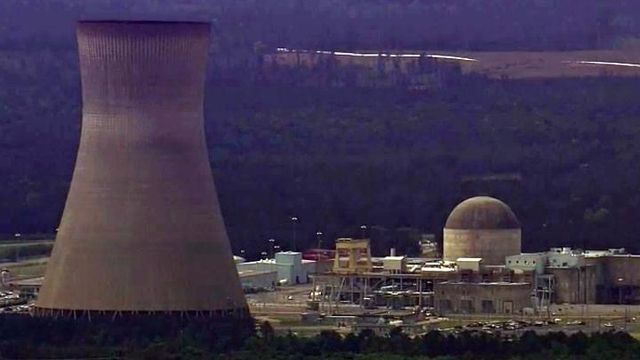Lawmakers get update on NC's nuclear capability
Because of a change in federal regulations finalized in the past few months, the Shearon Harris nuclear plant in southwest Wake County could keep operating for another 48 years, Duke Energy officials told state lawmakers Tuesday.
Posted — UpdatedWhen the federal Nuclear Regulatory Commission began licensing nuclear power plants, it set a 40-year term for those licenses with one potential 20-year extension. Shearon Harris' 40-year license is set to expire in 2026, and Duke has already been granted an to 2046.
But a second 20-year extension is now possible as long as regulators find that a reactor can run safely for that much longer, Duke's Chief Nuclear Officer Preston Gillespie told members of a legislative oversight panel.
Gillespie said equipment inside nuclear plants is replaced on a regular schedule, so even older plants have newer technology. The one thing that can't be replaced is the reactor vessel itself, and because it's constantly being irradiated, it will eventually break down, he said.
But that would take a lot longer than 80 years, he added.
Gillespie also assured lawmakers that Duke is "very well prepared to deal with what comes our way" in terms of security threats. Nuclear plants have some of the best trained security forces outside the military, he said.
"My fear is always not that somebody’s going to crash through the front gate but that somebody’s sitting behind a computer trying to find a way into our system," he said of efforts to combat cyber threats.
Shearon Harris produced 8 billion kilowatt-hours of power last year – nearly a gigawatt of power continuously – supplying most of the power for the Triangle area.
Overall, Duke Energy Carolinas generates 52 percent of its energy from nuclear power, Gillespie said, which is much higher than utilities in many other states. Nationwide, nuclear power supplies about 20 percent of energy.
Despite concerns over nuclear waste, he predicted nuclear plants will play a bigger role in producing power in the future because they produce no greenhouse gases.
"Renewables are doing great at growing to meet demand, but at some point, you’ve got to have a source that’s available 24 hours a day, seven days a week," he said.
Nuclear power represents 11 percent of world's energy resources and 35 percent of all carbon-free energy, officials said.
Former NRC member Jeffrey Merrifield told lawmakers the focus needs to move from "renewable energy standards" to "clean energy standards," noting that biofuels like wood pellets may be renewable but produce carbon emissions.
A shift in focus would allow nuclear developers to get credit for meeting portfolio standards, which they can’t currently do, Merrifield said.
The U.S. has 99 operating nuclear units, but cheap natural gas has stalled construction on 15 of 17 proposed units, he said.
Related Topics
• Credits
Copyright 2024 by Capitol Broadcasting Company. All rights reserved. This material may not be published, broadcast, rewritten or redistributed.






